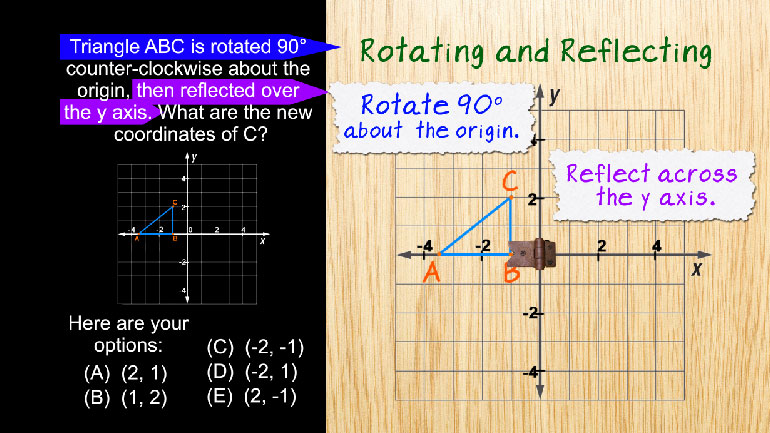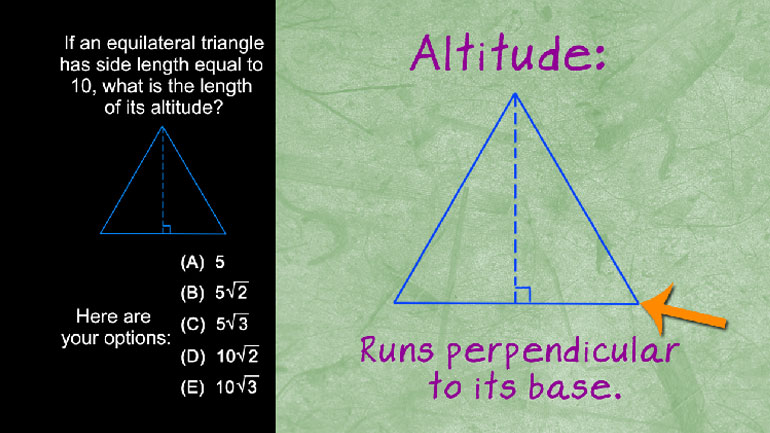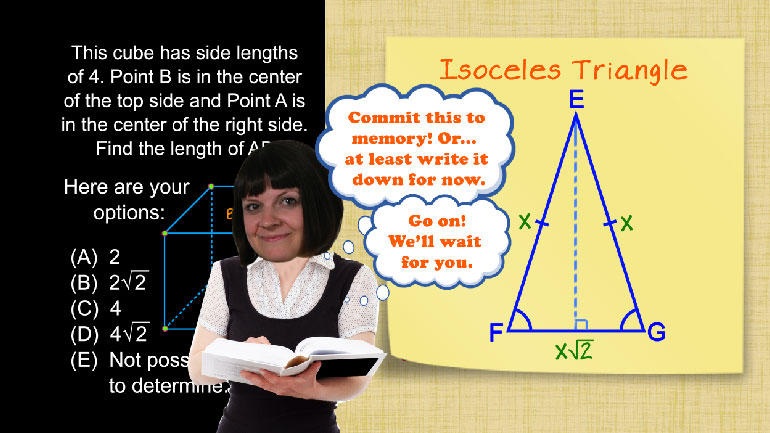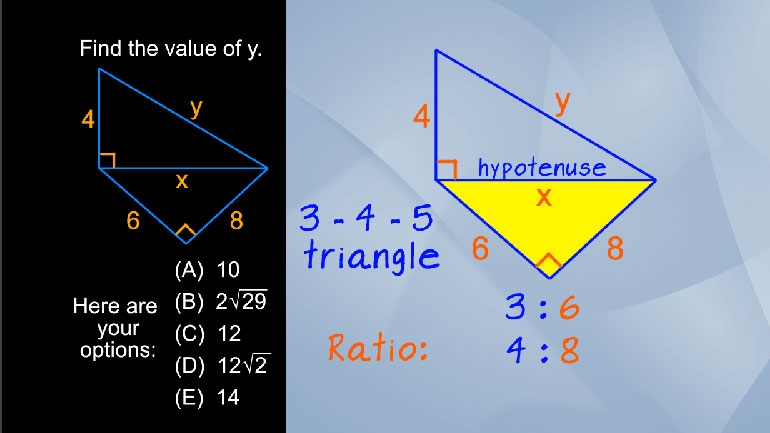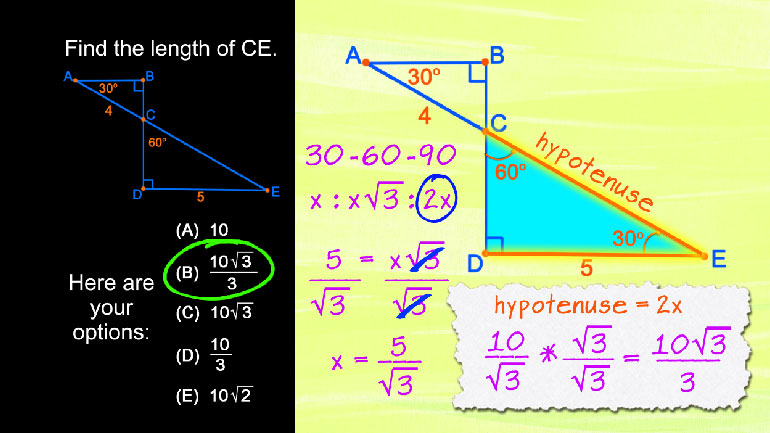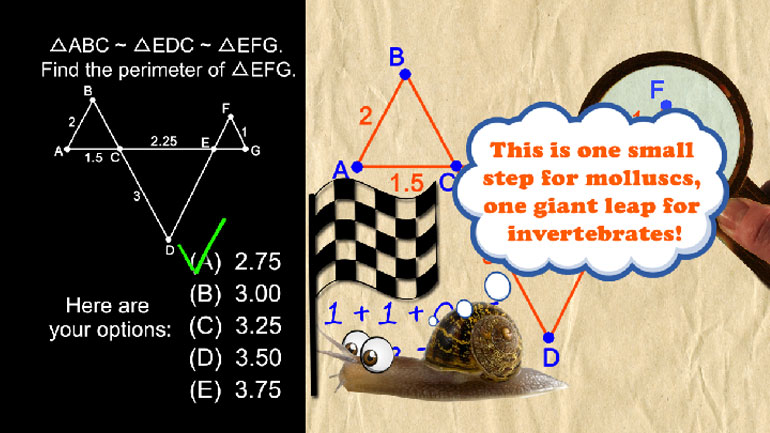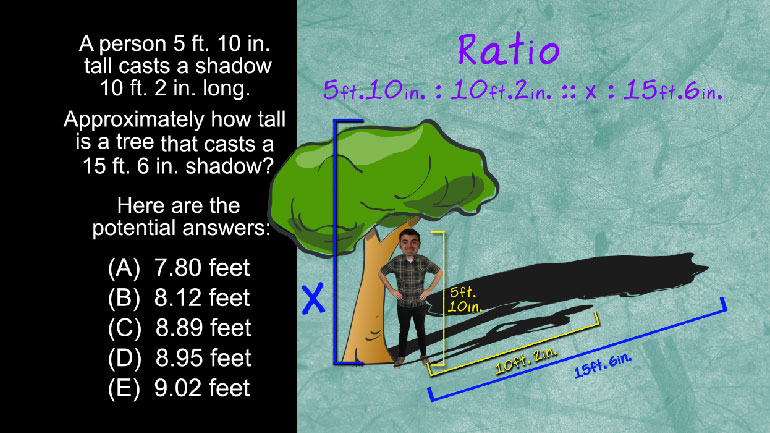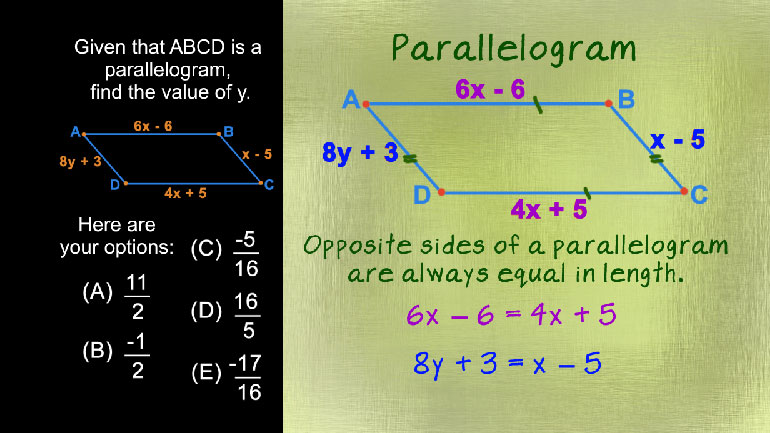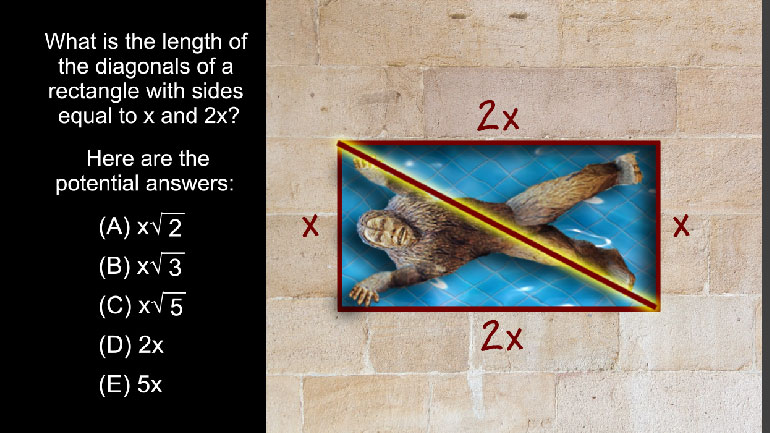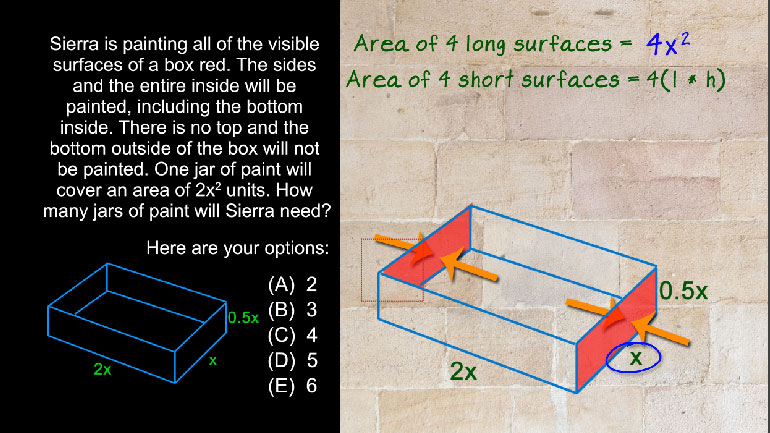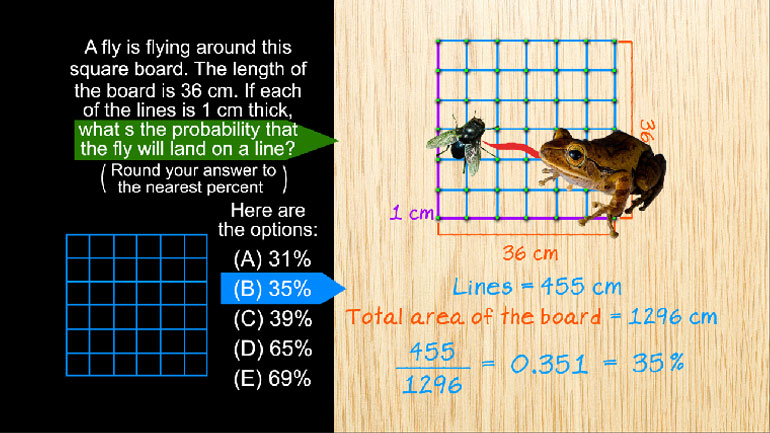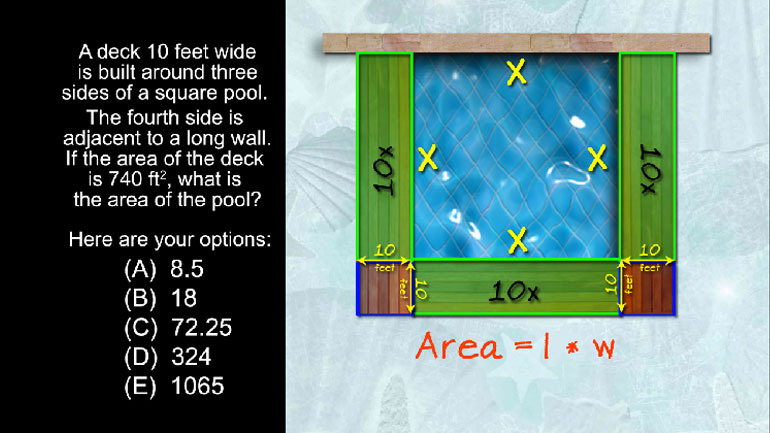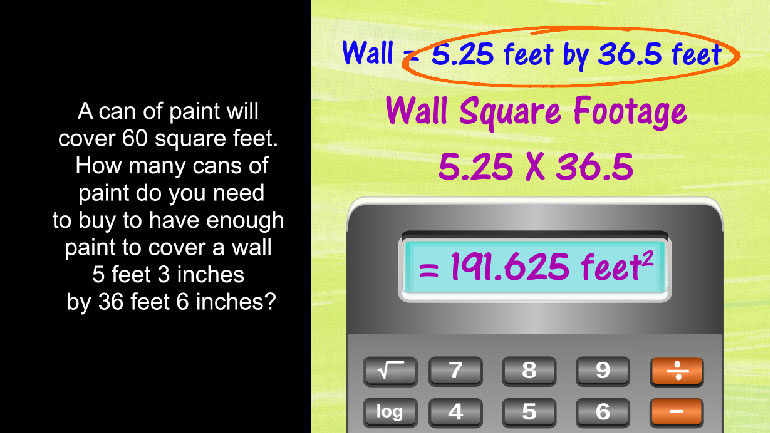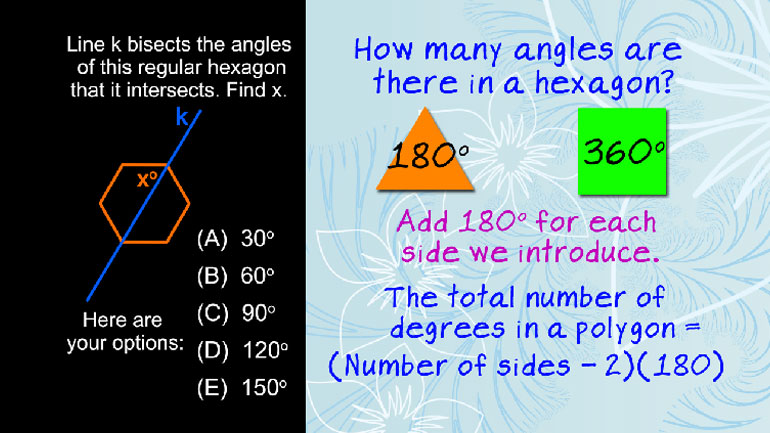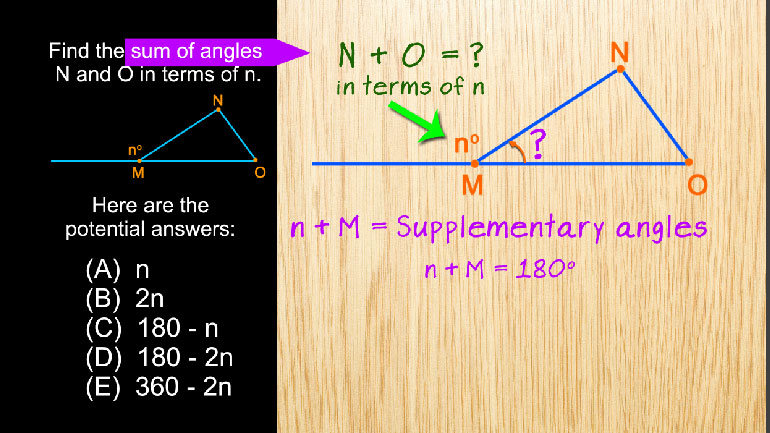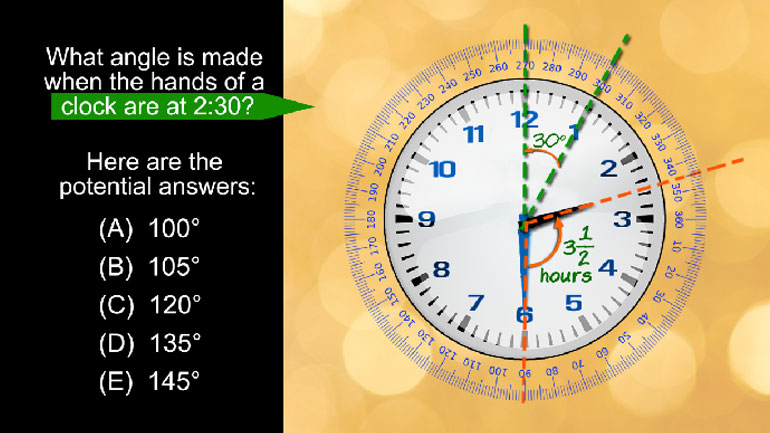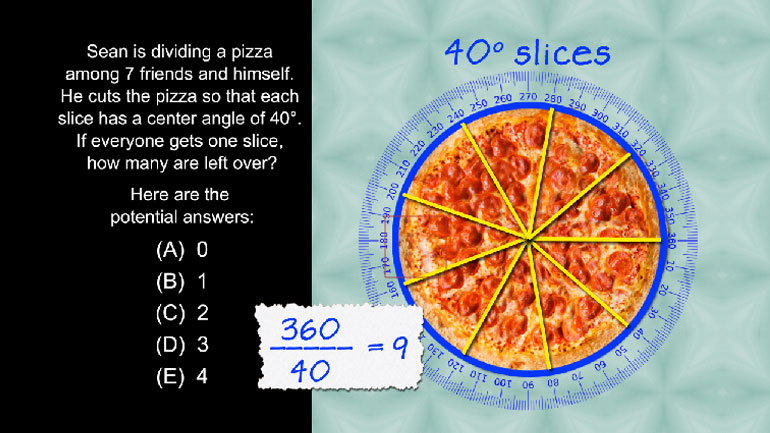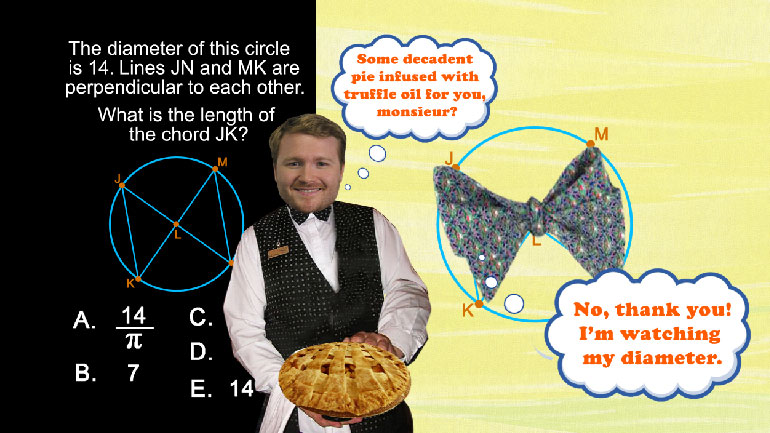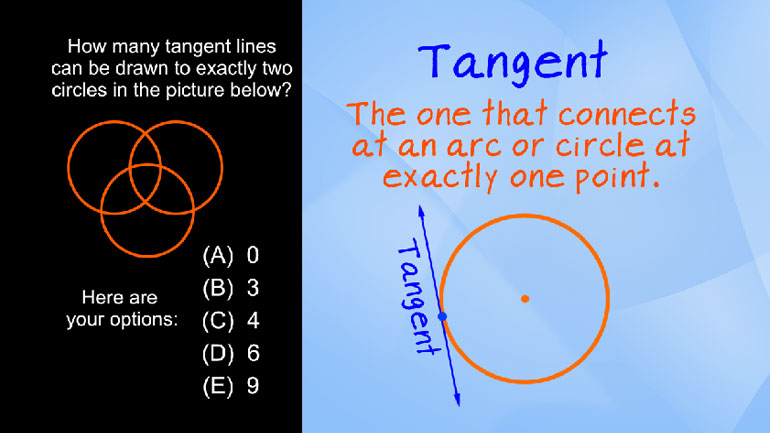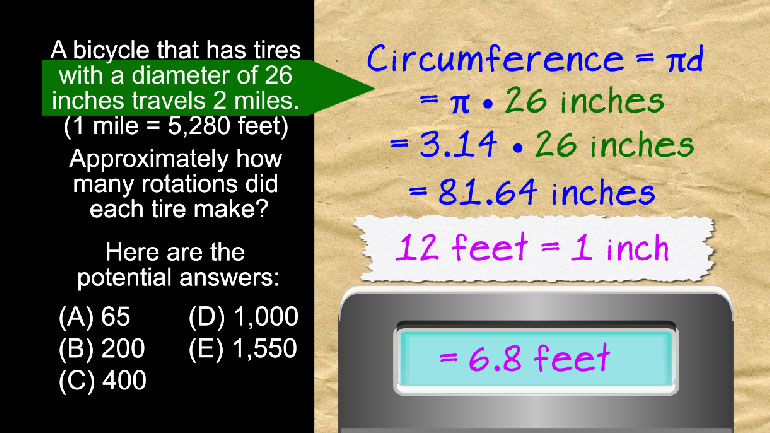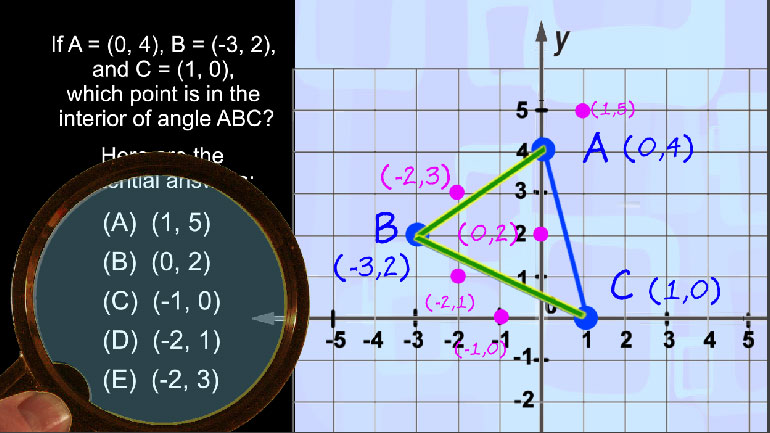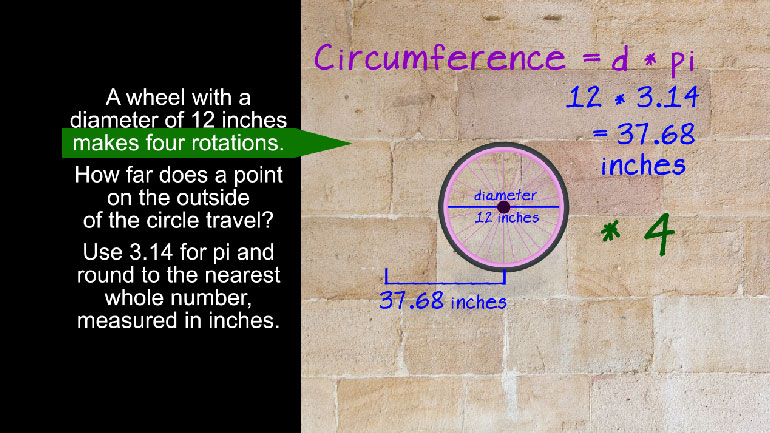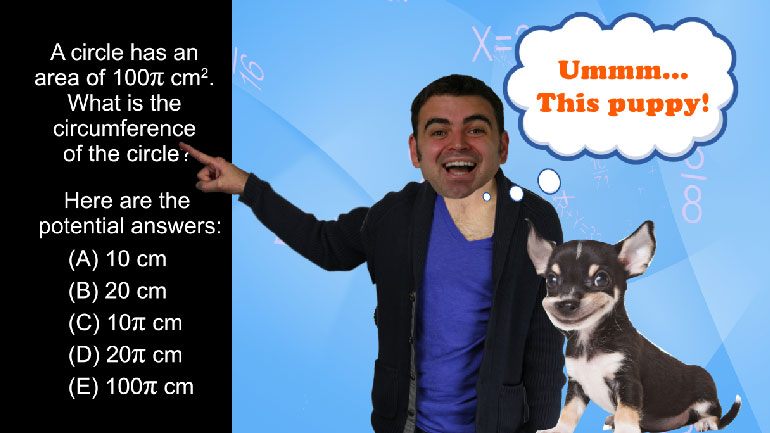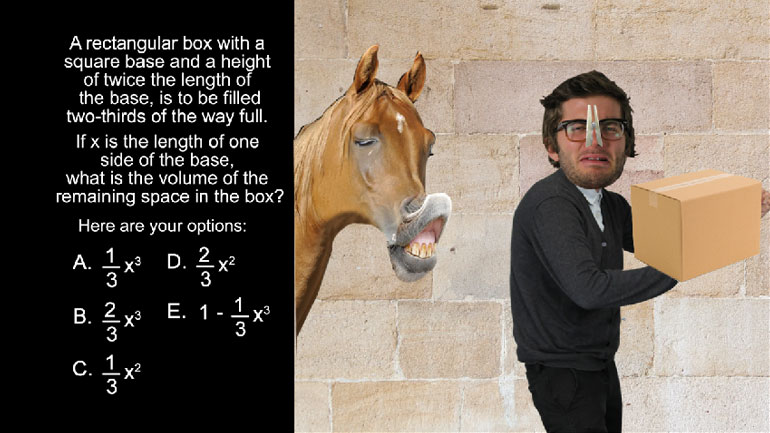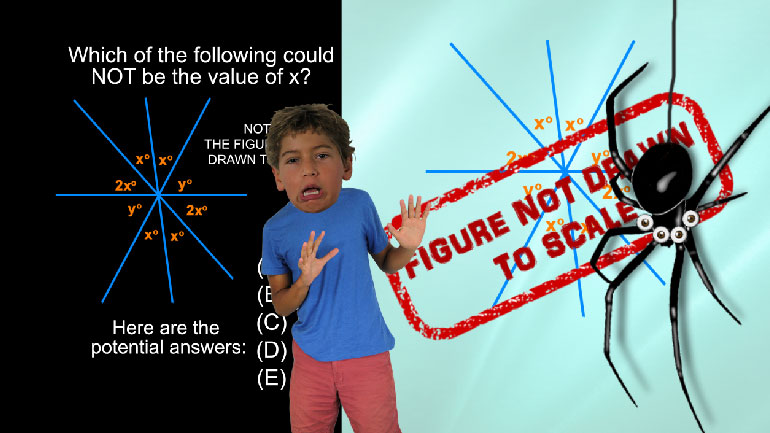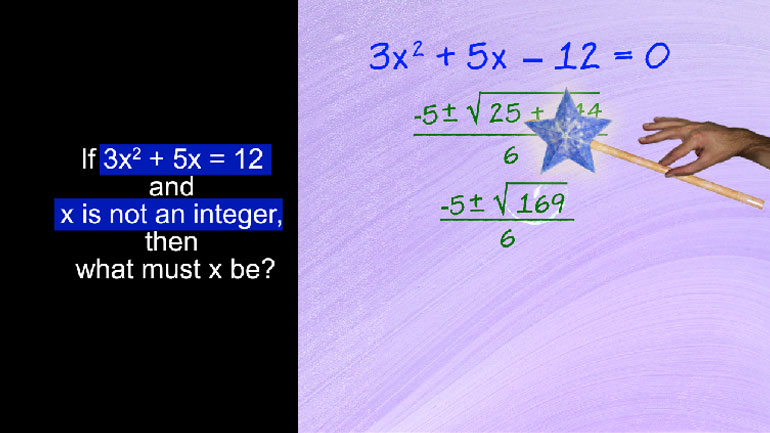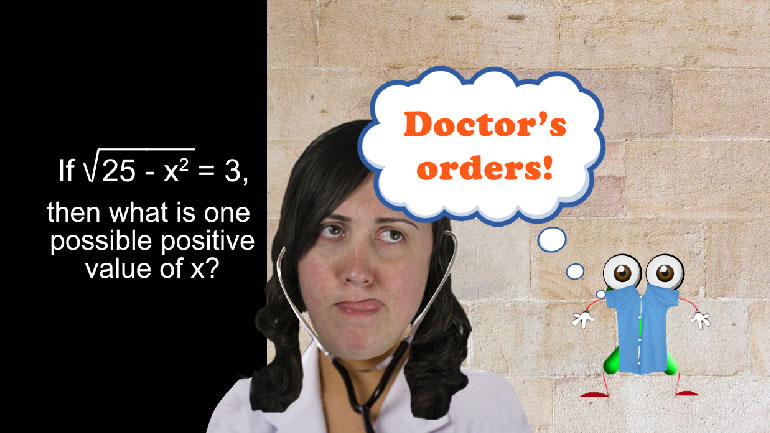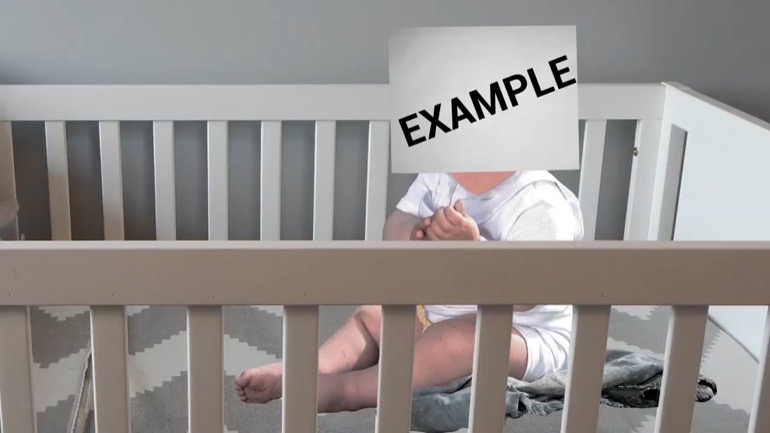ShmoopTube
Where Monty Python meets your 10th grade teacher.
Search Thousands of Shmoop Videos
SAT Math 4.4 Geometry and Measurement 210 Views
Share It!
Description:
SAT Math 4.4 Geometry and Measurement
Transcript
- 00:02
Here’s your shmoop du jour, brought to you by radius envy.
- 00:06
As observed by the renowned psychoanalyst Segment Freud.
- 00:13
If the large circle has a center of H and the small circle has a center of I,
- 00:18
and K is the midpoint of IH, what percent of the large circle (Circle H) is shaded?
- 00:25
And here are the potential answers...
Full Transcript
- 00:29
We’ve got circles and triangles and intersections and midpoints up the wazoo.
- 00:34
That shaded area is what we’re after…
- 00:36
it’s both part of a triangle and part of both circles, so…where to start?
- 00:41
Well, what are we given? We’re told that segment KI is half the length of HI.
- 00:46
We aren’t given any numbers, so… heck, let’s just throw some in here.
- 00:50
If we call KI “1,” then HI can be “2.”
- 00:55
We’re also told that I is the midpoint of the smaller circle, so we know KI is the radius
- 01:00
of that smaller circle. So is IL…which makes that segment also equal to “1.”
- 01:06
Now…what about the radii of the larger circle?
- 01:09
We’ve already determined that HI is 2… so HJ, another radius, would also be 2.
- 01:14
And we know that angle IHJ is 90 degrees.
- 01:17
Well, now we’ve got a right triangle with 2 sides of equal length…meaning we have an
- 01:21
isosceles triangle on our hands…
- 01:23
…which, by definition, has two angles of 45 degrees.
- 01:26
All right, so angle KLI is 45 degrees.
- 01:29
A full circle is 360 degrees… so the area of the shaded section is 45/360ths of the smaller circle.
- 01:37
45 divided by 360 is 0.125…or 12.5% of the area of the small circle.
- 01:43
12.5% is one of our answer choices… but don’t let ‘em rope you in here.
- 01:48
We’re looking for the percentage of the larger circle.
- 01:51
The area of the small circle…or, of any circle, for that matter, is πr squared.
- 01:56
We’ve decided to call our radius “1,” so our area in this case is π(1)2, or just…pi.
- 02:03
The shaded area is therefore 12.5% of pi, or 0.125 pi.
- 02:08
So…what percentage of the larger circle is that?
- 02:11
Well, we need to do the same thing we just did to find the area of the big guy.
- 02:15
Here, our radius is 2, so the area is pi times 2 squared… or 4 pi.
- 02:20
So finally, to find the percentage, we take our 0.125 pi divided by 4 pi…
- 02:26
…to get 0.03125…
- 02:28
…or 3.125%.
- 02:30
Answer B.
- 02:32
That’s a long way to go just to find a tiny shady area.
Related Videos
SAT Math 2.1 Geometry and Measurement. What is the measure of angle z in terms of x and y?
In 2014, the unemployment rate of one county in California was 7%. In another county, the unemployment rate was 11%. Which of the following express...
Angela is making cookies for a bake sale. She expects each batch of her cookies to sell for $40. It costs her $10 to make one batch of cookies, and...


